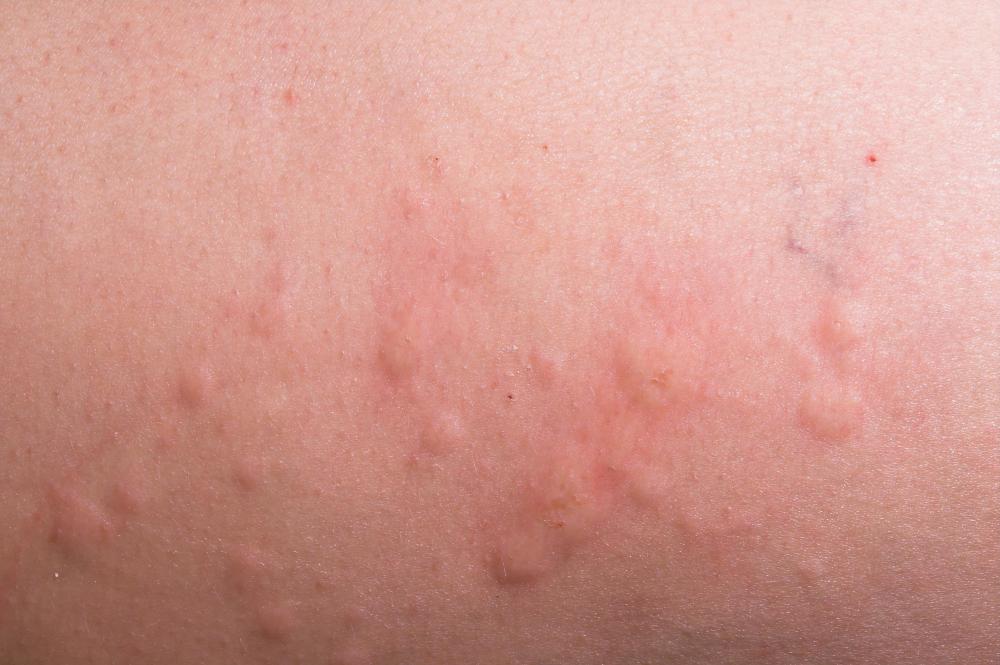At WiseGEEK, we're committed to delivering accurate, trustworthy information. Our expert-authored content is rigorously fact-checked and sourced from credible authorities. Discover how we uphold the highest standards in providing you with reliable knowledge.
What is a Hives Virus?
“Hives virus” is a term used to describe any virus which causes someone to break out in hives during or after the illness. Some viruses, such as roseola, are commonly associated with hives and other rashes. Others, like the common cold, can also lead to rashes in those who are hypersensitive. Nearly any virus can cause hives in some individuals.
There are many viruses which are commonly associated with hives and other skin irritation, such as chicken pox, but any virus has the potential to lead to a hives breakout in some individuals. All forms of hepatitis, the common cold, and other more rarely seen viruses can all lead to hives. In most cases, skin irritation occurs after the virus has ended, but sometimes hives become an issue while the patient is still suffering from viral symptoms.

Roseola is one type of hives virus which can cause welts and a skin rash after infection. It is most commonly noted in children. This virus can cause high fever, nausea, and cold-like symptoms for several days. Once symptoms subside, the patient generally breaks out in a rash along the abdomen and back.
Most times there is no treatment needed for the skin reactions caused by a hives virus. Sometimes itching may occur, but this not overly common. Hives which are related to a viral infection generally subside on their own without further treatment. Any skin symptoms which persist should be investigated by a doctor to rule out complications.

It should never be assumed that a hives virus is to blame for skin irritation. There are many different irritants which can lead to hives, including certain medications which are often used to treat infections. Any skin redness, bumps, welts, and other symptoms should be reported to a doctor immediately to rule out drug interactions. Additional symptoms may be present in the case of a reaction.

There is usually no way to prevent hives in those with a viral infection. They are not common in most viruses, but certain individuals are more prone to skin reactions than others. Hives are typically caused by a hypersensitive immune response. This can occur as a result of allergens on the skin or internal factors such as bacterial, parasitic, and viral infections.
AS FEATURED ON:
AS FEATURED ON:
















Discussion Comments
When my cousin's daughter was about four, she got roseola. Her fever skyrocketed and she felt awful. They got her fever down and then the hives broke out. She looked like she should be in quarantine and she itched something fierce. Since she was too young to not scratch, her parents had to find a solution.
That's been several years ago, and I think Children's Benadryl was effective in getting the itching under control, if I remember correctly. The hives themselves took a couple of days to resolve, but they were able to keep her from itching so much with the Benadryl. I know she was downright miserable for several days, though.
Post your comments